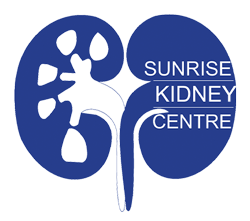Kidney Transplantation in Vijayawada
Kidney transplantation is a surgical procedure that involves implanting a healthy kidney from a living or deceased donor into a patient with failing kidneys due to chronic or acute renal conditions. This treatment is often recommended by best kidney Doctor in Vijayawada for those who do not respond well to dialysis, with the goal of restoring kidney function, improving quality of life, and reducing the risks associated with long-term dialysis. Donors can be family, friends, or deceased individuals who have consented to donation. Before the procedure, patients undergo comprehensive evaluations to determine their suitability and compatibility. After transplantation, recipients must take immunosuppressive drugs to prevent organ rejection and attend regular follow-ups to monitor kidney health. Although this procedure can significantly extend life expectancy and enhance quality of life, it also involves risks such as surgical complications and the side effects of ongoing immunosuppressive therapy.
Broad categorization of kidney transplant

Kidney transplants can be broadly divided into two types based on the source of the kidney: those from living donors and those from deceased donors. In living donor transplants, a healthy person—either a relative, friend, or altruistic donor—gives one of their kidneys to a recipient, often resulting in better outcomes and shorter wait times. Deceased donor transplants involve kidneys from individuals who have died, typically due to brain or cardiac death, with organ matching managed through allocation systems based on compatibility and urgency. At kidney transplantation hospitals in Vijayawada other methods include paired exchanges, where incompatible donor-recipient pairs swap kidneys to facilitate transplantation, and dual kidney transplants, where two kidneys from a single deceased donor are transplanted into one recipient, often for older or larger patients. Both approaches aim to improve survival and quality of life for patients with severe kidney failure.
Need for a kidney transplant
A kidney transplant is typically recommended for patients with end-stage renal disease (ESRD) or severe chronic kidney disease (CKD) when conservative treatments, dialysis, or other therapies are no longer effective. Indications include conditions like diabetes, hypertension, glomerulonephritis, and polycystic kidney disease that cause a significant reduction in kidney function, often below a glomerular filtration rate of 15 mL/min. Kidney transplantation in Vijayawada may also be considered for patients experiencing serious complications of ESRD, such as severe electrolyte imbalances, fluid overload, or uremic symptoms that impair quality of life. Eligibility depends on factors such as overall health, psychosocial stability, and the likelihood of successful transplantation, with younger patients and those with higher transplant success potential often prioritized. The goal is to restore kidney function, enhance quality of life, and prolong survival, with careful evaluation to ensure the best outcomes.
Post transplant recovery
Recovery from a kidney transplant varies among individuals, with the initial hospital stay typically lasting from a few days to a week for monitoring and complication management. The subsequent healing process at home can take several months, sometimes up to six months or more, influenced by overall health, compliance with immunosuppressive therapy, and any post-surgical issues. During this period, patients often feel fatigued and need to limit physical activity. Regular check-ups with nephrology doctors in Vijayawada are essential to ensure proper kidney function and to make necessary adjustments to medications.
For more information, consult Dr. M.V. Sai Krishna at Sunrise Kidney Centre.

